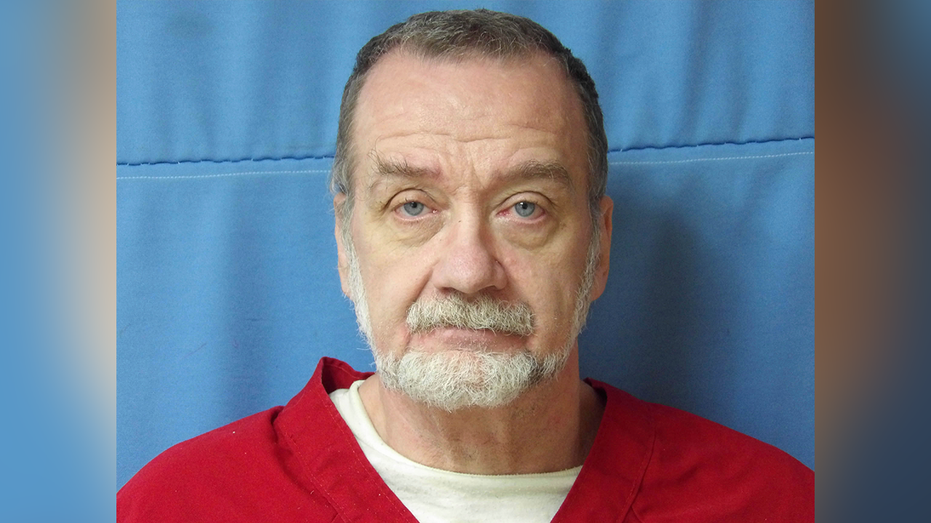
Mississippi Attorney General Lynn Fitch, a Republican, is seeking an execution date for a convicted killer who has been on death row for 30 years, but his lawyer argues that the request is premature since the man plans to appeal to the U.S. Supreme Court.
Charles Ray Crawford, 58, was sentenced to death in connection with the 1993 kidnapping and killing of 20-year-old community college student Kristy Ray, according to The Associated Press.
During his 1994 trial, jurors pointed to a past rape conviction as an aggravating circumstance when they issued Crawford’s sentence, but his attorneys said Monday that they are appealing that conviction to the Supreme Court after a lower court ruled against them last week.
Crawford was arrested the day after Ray was kidnapped from her parents’ home and stabbed to death in Tippah County. Crawford told officers he had blacked out and did not remember killing her.
He was arrested just days before his scheduled trial on a charge of assaulting another woman by hitting her over the head with a hammer.
The trial for the assault charge was delayed several months before he was convicted. In a separate trial, Crawford was found guilty in the rape of a 17-year-old girl who was friends with the victim of the hammer attack. The victims were at the same place during the attacks.
Crawford said he also blacked out during those incidents and did not remember committing the hammer assault or the rape.
During the sentencing portion of Crawford’s capital murder trial in Ray’s death, jurors found the rape conviction to be an “aggravating circumstance” and gave him the death sentence, according to court records.
PRO-TRUMP PRISON WARDEN ASKS BIDEN TO COMMUTE ALL DEATH SENTENCES BEFORE LEAVING
In his latest federal appeal of the rape case, Crawford claimed his previous lawyers provided unconstitutionally ineffective assistance for an insanity defense. He received a mental evaluation at the state hospital, but the trial judge repeatedly refused to allow a psychiatrist or other mental health professional outside the state’s expert to help in Crawford’s defense, court records show.
On Friday, a majority of the 5th U.S. Circuit Court of Appeals rejected Crawford’s appeal.
But the dissenting judges wrote that he received an “inadequately prepared and presented insanity defense” and that “it took years for a qualified physician to conduct a full evaluation of Crawford.” The dissenting judges quoted Dr. Siddhartha Nadkarni, a neurologist who examined Crawford.
“Charles was laboring under such a defect of reason from his seizure disorder that he did not understand the nature and quality of his acts at the time of the crime,” Nadkarni wrote. “He is a severely brain-injured man (corroborated both by history and his neurological examination) who was essentially not present in any useful sense due to epileptic fits at the time of the crime.”
Crawford’s case has already been appealed multiple times using various arguments, which is common in death penalty cases.
Hours after the federal appeals court denied Crawford’s latest appeal, Fitch filed documents urging the state Supreme Court to set a date for Crawford’s execution by lethal injection, claiming that “he has exhausted all state and federal remedies.”
However, the attorneys representing Crawford in the Mississippi Office of Post-Conviction Counsel filed documents on Monday stating that they plan to ask the U.S. Supreme Court to overturn the appeals court’s ruling.
The Associated Press contributed to this report.
Mississippi Attorney General Lynn Fitch, a Republican, is seeking an execution date for a convicted killer who has been on death row for 30 years, but his lawyer argues that the request is premature since the man plans to appeal to the U.S. Supreme Court.
Charles Ray Crawford, 58, was sentenced to death in connection with the 1993 kidnapping and killing of 20-year-old community college student Kristy Ray, according to The Associated Press.
During his 1994 trial, jurors pointed to a past rape conviction as an aggravating circumstance when they issued Crawford’s sentence, but his attorneys said Monday that they are appealing that conviction to the Supreme Court after a lower court ruled against them last week.
Crawford was arrested the day after Ray was kidnapped from her parents’ home and stabbed to death in Tippah County. Crawford told officers he had blacked out and did not remember killing her.
He was arrested just days before his scheduled trial on a charge of assaulting another woman by hitting her over the head with a hammer.
The trial for the assault charge was delayed several months before he was convicted. In a separate trial, Crawford was found guilty in the rape of a 17-year-old girl who was friends with the victim of the hammer attack. The victims were at the same place during the attacks.
Crawford said he also blacked out during those incidents and did not remember committing the hammer assault or the rape.
During the sentencing portion of Crawford’s capital murder trial in Ray’s death, jurors found the rape conviction to be an “aggravating circumstance” and gave him the death sentence, according to court records.
PRO-TRUMP PRISON WARDEN ASKS BIDEN TO COMMUTE ALL DEATH SENTENCES BEFORE LEAVING
In his latest federal appeal of the rape case, Crawford claimed his previous lawyers provided unconstitutionally ineffective assistance for an insanity defense. He received a mental evaluation at the state hospital, but the trial judge repeatedly refused to allow a psychiatrist or other mental health professional outside the state’s expert to help in Crawford’s defense, court records show.
On Friday, a majority of the 5th U.S. Circuit Court of Appeals rejected Crawford’s appeal.
But the dissenting judges wrote that he received an “inadequately prepared and presented insanity defense” and that “it took years for a qualified physician to conduct a full evaluation of Crawford.” The dissenting judges quoted Dr. Siddhartha Nadkarni, a neurologist who examined Crawford.
“Charles was laboring under such a defect of reason from his seizure disorder that he did not understand the nature and quality of his acts at the time of the crime,” Nadkarni wrote. “He is a severely brain-injured man (corroborated both by history and his neurological examination) who was essentially not present in any useful sense due to epileptic fits at the time of the crime.”
Crawford’s case has already been appealed multiple times using various arguments, which is common in death penalty cases.
Hours after the federal appeals court denied Crawford’s latest appeal, Fitch filed documents urging the state Supreme Court to set a date for Crawford’s execution by lethal injection, claiming that “he has exhausted all state and federal remedies.”
However, the attorneys representing Crawford in the Mississippi Office of Post-Conviction Counsel filed documents on Monday stating that they plan to ask the U.S. Supreme Court to overturn the appeals court’s ruling.
The Associated Press contributed to this report.






